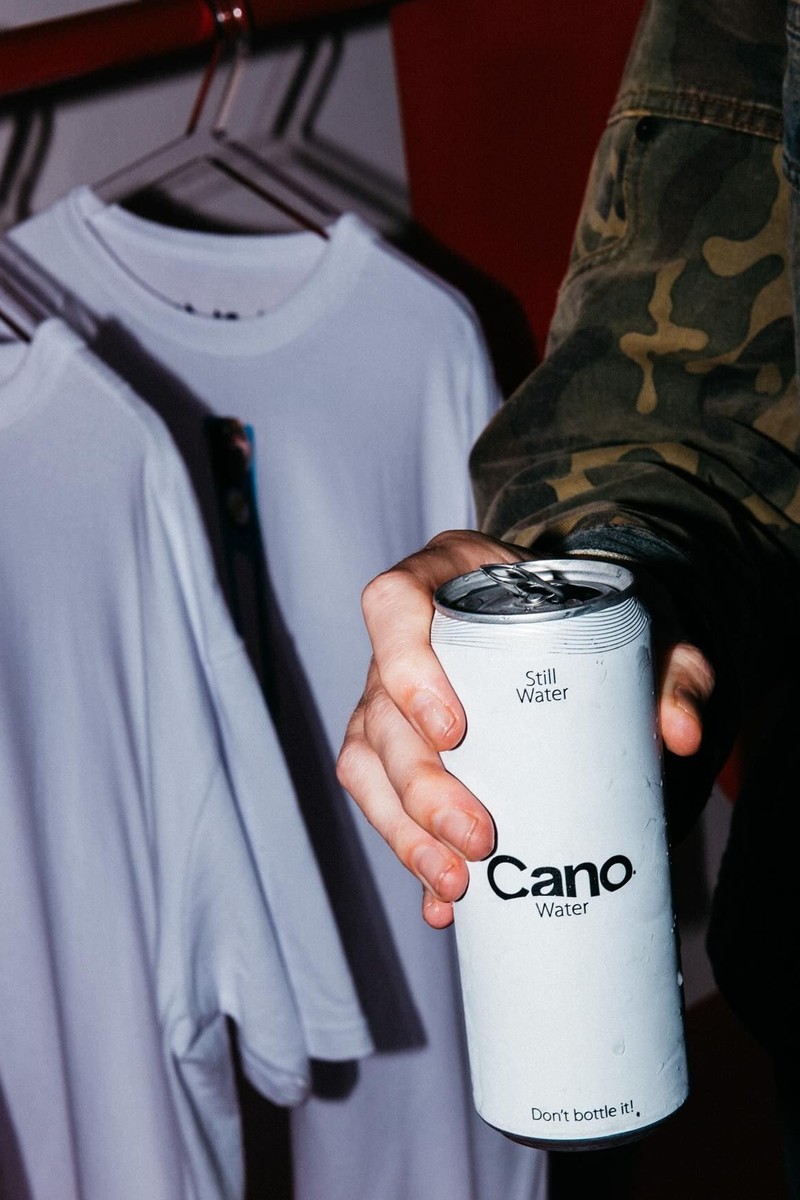Business Lessons From The Founder Of Cano Water
Disclaimer: This feature includes discussions on sensitive topics such as suicide and addiction, which some readers may find distressing.
ADHD is both my biggest challenge and my biggest superpower. It’s taken me years to figure out how to harness it. Growing up, especially at school, it was incredibly tough to focus because of it. But I’ve always been a creative at heart, and that’s where the ‘superpower’ aspect really comes into play. In today’s world, where creativity and standing out matter so much, I’ve found that my brain works differently from most people. While most think in a linear way, my mind races in a thousand directions. It’s that unique thinking that helped me come up with something like putting water in a can. I and my business partner Perry, who also has ADHD, really attribute a lot of our success to this.
Perry and I work well together. He’s a designer and I handle the CEO role, but I’m definitely more of the ‘crazy ideas’ guy. The ADHD doesn’t create issues in the day-to-day running of the business because we’ve learnt to work with it. I was diagnosed when I was younger, so I’ve had plenty of time to figure out how to manage it. Over the years, I’ve discovered that things like going to the gym, taking ice baths, or listening to music help me stay focused by boosting my dopamine levels. Without those routines, I have major slumps during the day. I speak to a lot of people now who are only just being diagnosed with ADHD in their 30s or 40s, and I genuinely feel for them. Understanding ADHD is a journey, and it takes time to learn how to manage it.
I’ve always suffered from anxiety. Even at 10 or 11 years old, when most kids aren’t thinking about the world’s problems, I was. That’s just how my brain is wired. To cope, I started drinking at around 12 or 13. Drinking filled a huge void for me. It masked my anxiety and depression. Over the years, it got worse. Eventually, I learnt I had a lot of addiction in my family, something that was never really discussed when I was growing up. By the age of 15, I was drinking every day and felt like I had no future beyond 18 or 20. I was suicidal, unhappy, and lost.
Rehab was the best thing that ever happened to me. I was rushed in at 15, which introduced me to Alcoholics Anonymous. It was tough being that young in AA, surrounded by people much older than me, but I stuck with it. Staying sober wasn’t easy, especially as a teenager, then later as a DJ. All my friends were going on lads’ holidays and partying, and I felt like the odd one out. But staying sober was the greatest decision I ever made – it shaped who I am today. I also learned a lot about myself and my ADHD. There’s a huge overlap between ADHD and addiction, and many people I meet who struggle with addiction also have it. For me, I realised I had to find healthier ways to chase that dopamine high, whether through family time or fitness.
Before starting the business, I was a DJ and ran an events company. I DJed all over the world, mainly hip-hop stuff. I did some cool things, but my first real taste of entrepreneurship came at 19 when I started an events company. We worked with big names in the grime and dance scenes, and hosted massive events across the UK. We were filling venues with 10,000 people. It was a huge success until regulations for 18+ events changed. Overnight, we went from thriving to barely functioning. That was my first experience of failure, but it taught me resilience, which has been invaluable. I started Cano Water at 22, and I’ve been doing it for almost ten years now.
Most people thought we were mad to put water in a can. When I spoke to my parents, they thought I was crazy. A lot of my friends didn’t understand it either. But I’ve always been different, and I never wanted to follow the crowd – I’ve always wanted to innovate. The idea of doing something disruptive, something that would make people think, gave me a reason to get up every day. I need that challenge to keep going, otherwise I get bored. That drive is what inspired me to push forward with the business. It’s not about proving people wrong; it’s about following what excites you and finding your own path.
Naivety can be a gift. I always tell people that naivety can propel you into incredible places. You could look at the data, and it’ll say, ‘Yeah, this is never going to work.’ But naivety? It’s like, ‘Well, f*ck that, we’re going to make it work.’ That doesn’t mean there weren’t rough days. I remember being in our tiny little office, calling people up, and they’d just laugh down the phone at us. There were days I’d come home and literally go to sleep in tears, wondering, ‘Is this really it for me?’ No one believed in it. And it wasn’t just me. The other boys had their moments too. We’d all question how much more we could take of people doubting us.
Funding the business wasn’t easy. At the beginning, I invested money I made from DJing. That’s what I used to fund the trademark and a few other early expenses. But the real challenge was that we couldn’t even try water in a can before we launched. The minimum order quantity for still and sparkling was 150,000 cans each. We were incredibly nervous. What we did was pretty DIY. We’d come home after work – me from my events company job, and the other guys from their full-time jobs – and spray-paint silver cans black and white, and wrap them with vinyl to make fake cans of water. We’d show up to meetings with those.
Selfridges was our big break. It was the first store in the world to get rid of plastic packaging on its shelves. By some incredible stroke of fate, we emailed them two weeks before they were planning that. They called us in for a meeting, and they wanted our water to be one of the main products in the food hall. That was massive for us. It gave us this surge of belief, like, maybe we are onto something.
Being likable in business matters. Ultimately, you’ve got to be a good salesperson, both for your business and for yourself. In a world as saturated as ours, where everyone thinks they’re an entrepreneur, you have to stand out. For me, my story plays a big part in that. People might not know my backstory when they meet me, but they’re impressed by the person I am today. Then, when they hear what I’ve been through, there’s a real connection. I think my passion is what resonates most with people. Some founders impress investors with their skills in finance or operations, but for me, it’s the passion. Investors want to know that what they’re investing in is backed by the right people, and that’s where I’ve always tried to show up 100%.
Staying relevant is hard. But we’ve always focused heavily on brand identity. A lot of companies don’t know where they stand, but we do. We’re a premium product, and we focus on culture –whether it’s music, art or fashion. When people see our brand, they’re likely to see us associated with cool, edgy things. You won’t catch us playing Taylor Swift or Dua Lipa. Instead, you’ll hear old-school R&B or hip-hop. It’s just a bit cooler than what you’d expect from another water brand. And visually, our branding is sleek and minimalistic, standing out from the typical images of mountains and blue water that other brands use.
It’s tough when other brands jump on the bandwagon, but competition is healthy. In fact, it’s lonely being the only ones doing something – because when you're alone, people doubt you. They don’t believe in what you’re trying to do. But when competitors like Etienne and Liquid Death come in, it solidifies the category. It makes people realise, ‘Oh wait, this is actually a real thing.’
Focussing on my mental health is a priority, especially now I’m a dad. In the early years, I burnt out a lot. I used to push myself to the point of complete exhaustion and anxiety. Today, I prioritise my mental health above anything else. I don’t subscribe to that whole ‘start at 5am, finish at midnight’ mentality. For me, it’s more about working smarter and making time for myself. I’m still in the office every day and still just as passionate, but now I make sure to go for walks, hit the gym, and spend time with family and friends. My daughter was born 15 weeks ago, and that’s been the most phenomenal experience of my life. I want to be there for her, and I want her to grow up knowing that what I did wasn’t just about building a business, but about doing something that made a positive impact.
Opening up isn't easy, but it’s necessary. I used to find it tough talking about my past struggles, but not anymore. I’ve learned that growth comes from stepping out of your comfort zone, and my comfort zone has expanded over the years. I’ve faced a lot of trauma, and come out the other side stronger. Today, I’m open about everything because I know that by being open, I can help others. So many people are petrified of being vulnerable. There’s a stigma around not being successful or being different, and people are embarrassed to talk about it. But talking is so important. Now, helping people with ADHD or addiction or who are just struggling in business is a passion of mine. Every day I get messages from people who’ve heard me on a podcast or read about my story. That’s become another ‘high’ for me – knowing that my journey can help others.
During Covid, a friend of mine took his own life. I’ve had other friends and family members struggle with anxiety and mental health issues. I think the most important thing we can do is talk to each other and check in on one another. There’s power in simply asking, ‘Are you okay?’ In British culture, especially, guys tend to avoid deep conversations. We talk about football or business, but we shy away from the real stuff. But once you ask someone, ‘How are you, really?’ you realise that a lot of people are struggling. They just need that push to open up. I always tell people, just because someone looks like they’re doing well on the outside, it doesn’t mean they are. Perception is a dangerous thing. From the outside, everything looks great, but on the inside, people might be struggling. That’s something I’ve realised first-hand.
I was never the finished article growing up. I got expelled from school, and now, ironically, they invite me back every year to speak to the students. It just goes to show, you don’t need to have it all figured out straight away. You can work on yourself as you go. But you need to be open. Growth comes from opening up, and being honest with yourself and others.
Our story isn’t about privilege or wealth passed down from family. I didn’t have money handed to me by my dad. I’ve spent the last 18 years working on myself to get here, physically and mentally. I went from being a really unhealthy person to drinking only water and focusing on my health. People can relate to that because I’m still not the finished product, and I think that ongoing journey connects with them.
My advice for other entrepreneurs? Don’t bottle it. That’s written on every Cano can, and it’s one of my favourite sayings. It’s so important to believe in yourself. Don’t listen to the haters. If you truly believe in your idea, just go for it – even if the data doesn’t look perfect. Sometimes you just have to back yourself. It’s also important not to overwhelm yourself by trying to go from A to Z. You can’t jump straight to the finish line. Just focus on getting from A to B, then plan for the rest. Trying to take it all on at once is scary and overwhelming. And don’t be afraid to ask for help. The worst thing you can do is keep everything bottled up.
I wish I’d asked for more help. In the early days, I didn’t reach out for help enough, and it made things a lot harder than they needed to be. People often ask me what I would tell my younger self, and, honestly, I’d say just go with the flow and don’t worry so much. I used to stress about the outcome of every little thing. But if you believe in yourself, things will work out. And even if they don’t, failure is important. Each time I’ve faced adversity, it’s made me stronger and more resilient. That’s a key lesson I’ve taken with me throughout my entrepreneurial journey. You can’t be afraid to take risks, even when others doubt you.
Follow @Josh_White1 on Instagram. And you can find Cano Water at Tesco, Ocado & Amazon.
All products on this page have been selected by our editorial team, however we may make commission on some products.
DISCLAIMER: We endeavour to always credit the correct original source of every image we use. If you think a credit may be incorrect, please contact us at [email protected].
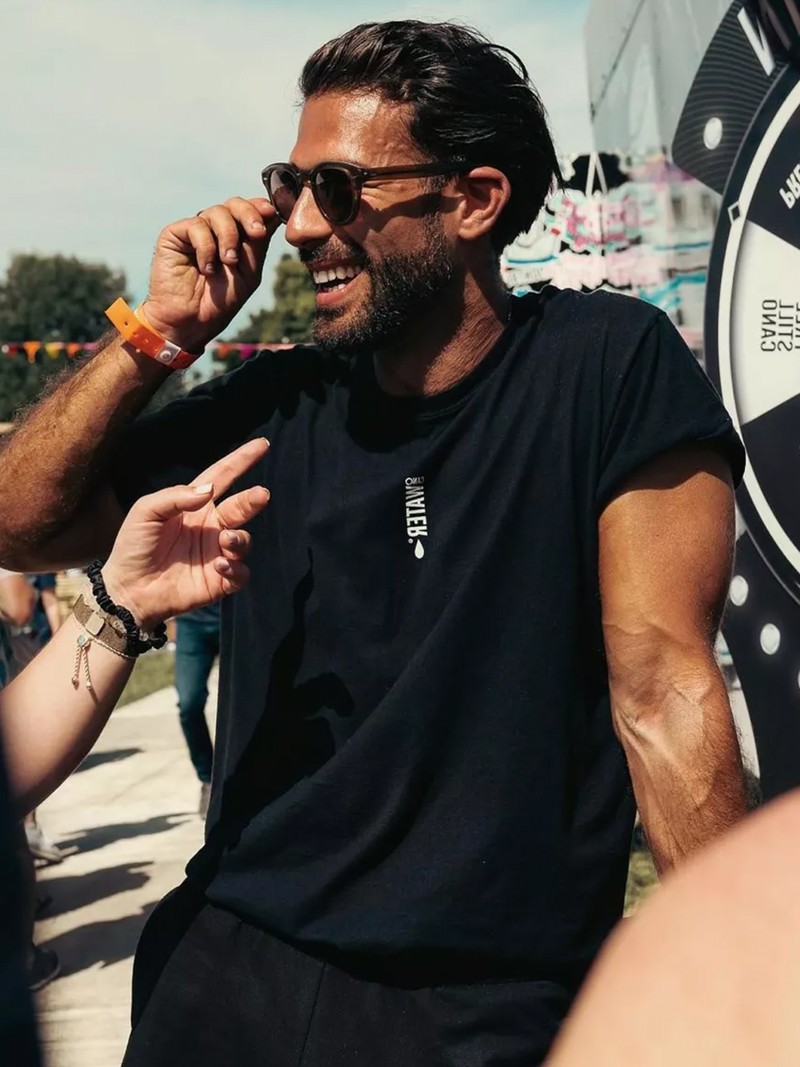
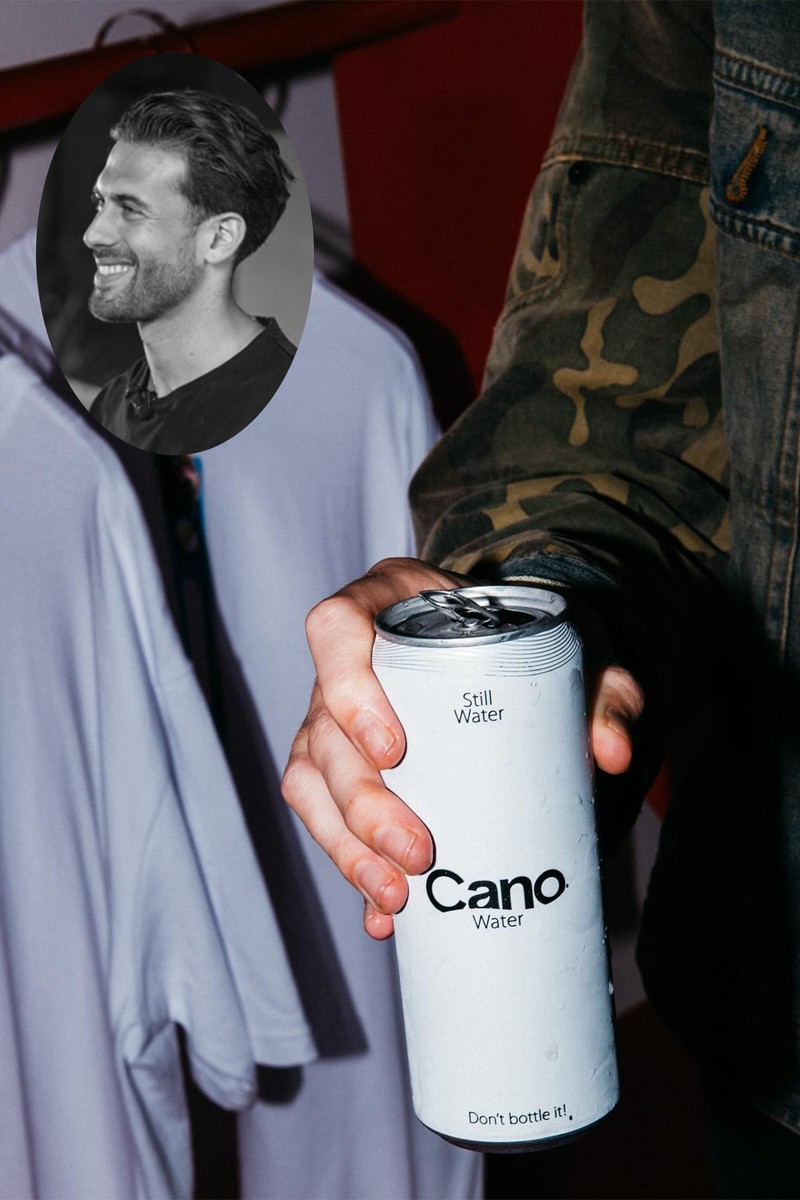
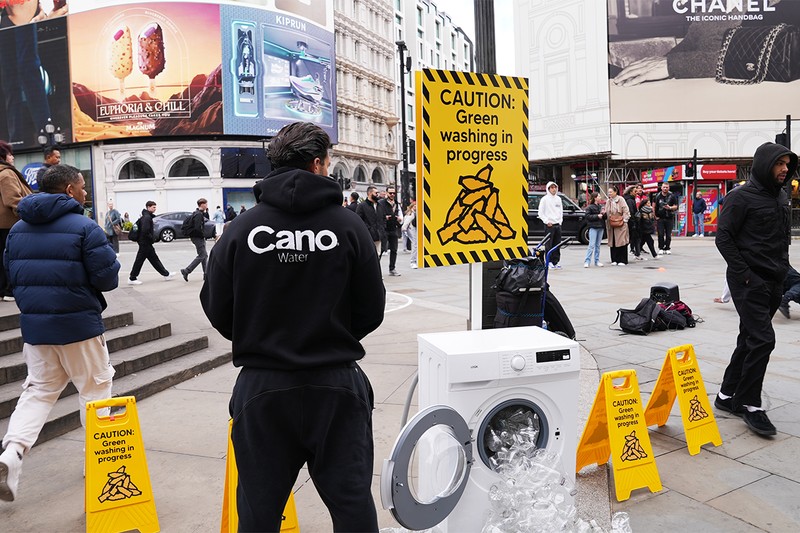
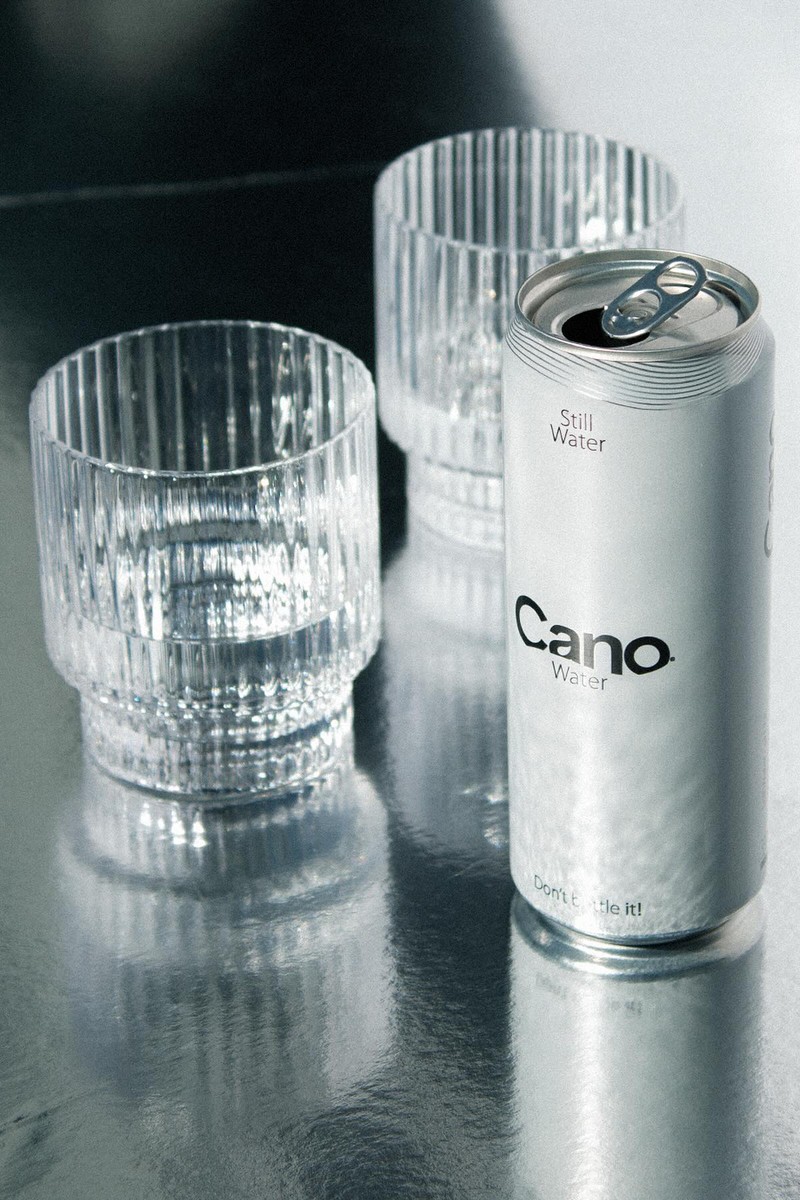
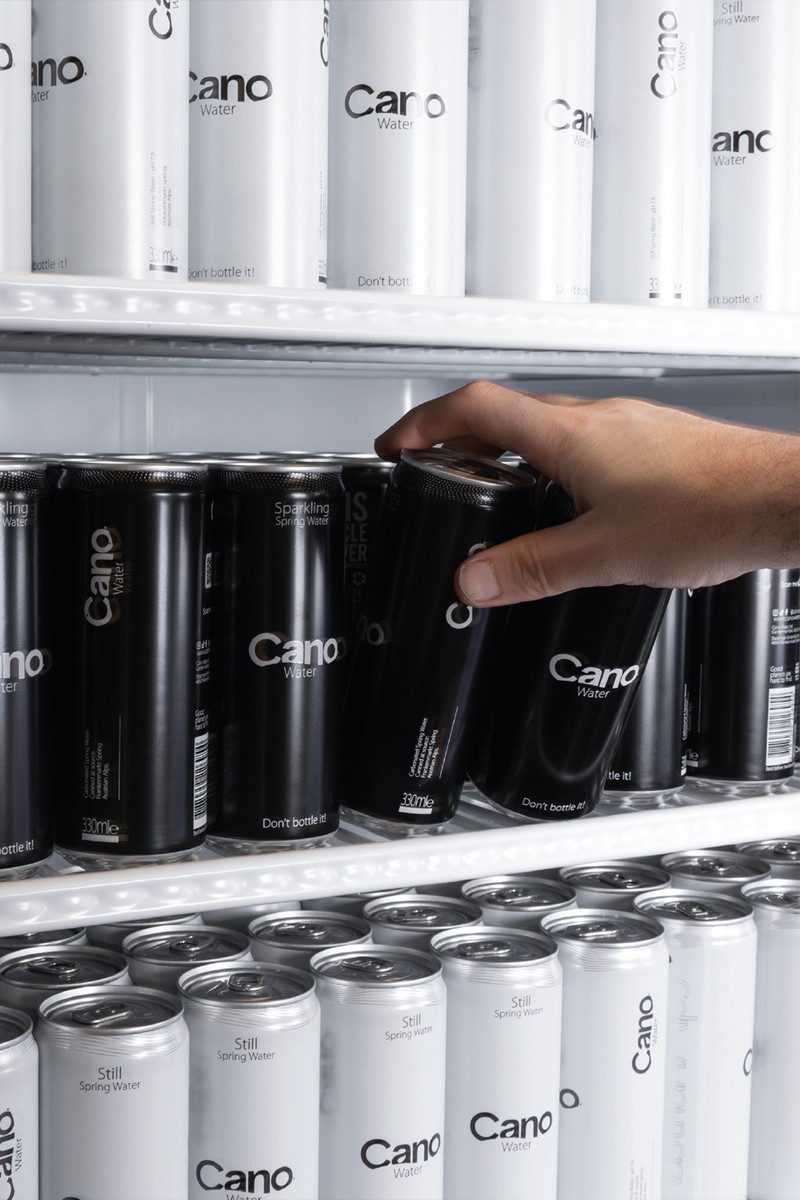
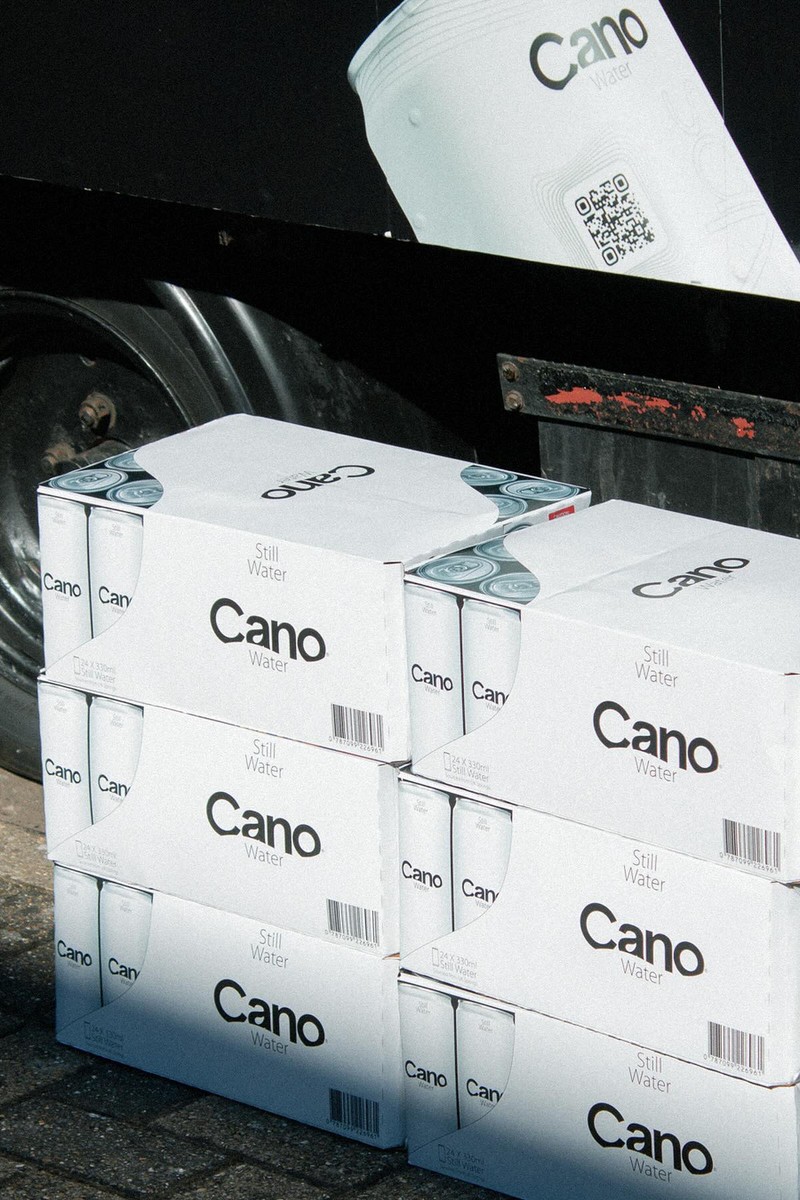
/https%3A%2F%2Fslman.com%2Fsites%2Fslman%2Ffiles%2Farticles%2F2024%2F09%2Fjosh-white.png?itok=XvmrFfZ0)
